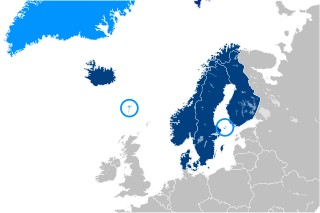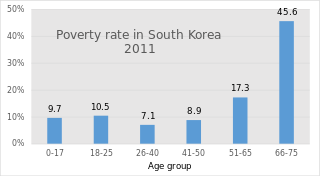Related Research Articles

A pension is a fund into which amounts are paid regularly during the individual's working career, and from which periodic payments are made to support the person's retirement from work. A pension may be:

Lionel Robert Jospin is a French politician who served as Prime Minister of France from 1997 to 2002.

Welfare, or commonly social welfare, is a type of government support intended to ensure that members of a society can meet basic human needs such as food and shelter. Social security may either be synonymous with welfare, or refer specifically to social insurance programs which provide support only to those who have previously contributed, as opposed to social assistance programs which provide support on the basis of need alone. The International Labour Organization defines social security as covering support for those in old age, support for the maintenance of children, medical treatment, parental and sick leave, unemployment and disability benefits, and support for sufferers of occupational injury.
Unemployment benefits, also called unemployment insurance, unemployment payment, unemployment compensation, or simply unemployment, are payments made by authorized bodies to unemployed people. In the United States, benefits are funded by a compulsory governmental insurance system, not taxes on individual citizens. Depending on the jurisdiction and the status of the person, those sums may be small, covering only basic needs, or may compensate the lost time proportionally to the previous earned salary.
Guaranteed minimum income (GMI), also called minimum income, is a social-welfare system that guarantees all citizens or families an income sufficient to live on, provided that certain eligibility conditions are met, typically: citizenship and that the person in question does not already receive a minimum level of income to live on.
Social welfare, assistance for the ill or otherwise disabled and the old, has long been provided in Japan by both the government and private companies. Beginning in the 1920s, the Japanese government enacted a series of welfare programs, based mainly on European models, to provide medical care and financial support. During the post-war period, a comprehensive system of social security was gradually established.

Social welfare has long been an important part of New Zealand society and a significant political issue. It is concerned with the provision by the state of benefits and services. Together with fiscal welfare and occupational welfare, it makes up the social policy of New Zealand. Social welfare is mostly funded through general taxation. Since the 1980s welfare has been provided on the basis of need; the exception is universal superannuation.

The Italian welfare state is based partly upon the corporatist-conservative model and partly upon the universal welfare model.
Social security in India includes a variety of statutory insurances and social grant schemes bundled into a formerly complex and fragmented system run by the Indian government at the federal and the state level. The Directive Principles of State Policy, enshrined in Part IV of the Indian Constitution reflects that India is a welfare state. Food security to all Indians are guaranteed under the National Food Security Act, 2013 where the government provides highly subsidised food grains or a food security allowance to economically vulnerable people. The system has since been universalised with the passing of The Code on Social Security, 2020. These cover most of the Indian population with social protection in various situations in their lives.

Social security is divided by the French government into five branches: illness; old age/retirement; family; work accident; and occupational disease. From an institutional point of view, French social security is made up of diverse organismes. The system is divided into three main Regimes: the General Regime, the Farm Regime, and the Self-employed Regime. In addition there are numerous special regimes dating from prior to the creation of the state system in the mid-to-late 1940s.
Welfare in France includes all systems whose purpose is to protect people against the financial consequences of social risks.

Social protection, as defined by the United Nations Research Institute for Social Development, is concerned with preventing, managing, and overcoming situations that adversely affect people's well-being. Social protection consists of policies and programs designed to reduce poverty and vulnerability by promoting efficient labour markets, diminishing people's exposure to risks, and enhancing their capacity to manage economic and social risks, such as unemployment, exclusion, sickness, disability, and old age. It is one of the targets of the United Nations Sustainable Development Goal 10 aimed at promoting greater equality.
Mexico reformed its pension system in 1997, transforming it from a pay as you go (PAYG), defined benefit (DB) scheme to a fully funded, private and mandatory defined contribution (DC) scheme. The reform was modeled after the pension reforms in Chile in the early 1980s, and was a result of recommendations from the World Bank. On December 10, 2020, the Mexican pension system would again undergo a major reform.
Pensions in Norway fall into three major divisions; State Pensions, Occupational Pensions and Individual or personal Pensions.

Social security or welfare in Finland is very comprehensive compared to what almost all other countries provide. In the late 1980s, Finland had one of the world's most advanced welfare systems, which guaranteed decent living conditions to all Finns. Created almost entirely during the first three decades after World War II, the social security system was an outgrowth of the traditional Nordic belief that the state is not inherently hostile to the well-being of its citizens and can intervene benevolently on their behalf. According to some social historians, the basis of this belief was a relatively benign history that had allowed the gradual emergence of a free and independent peasantry in the Nordic countries and had curtailed the dominance of the nobility and the subsequent formation of a powerful right wing. Finland's history was harsher than the histories of the other Nordic countries but didn't prevent the country from following their path of social development.
A social pension is a stream of payments from state to an individual that starts when someone retires and continues in payment until death. It is a part of a pension system of most developed countries, specifically the so-called zero or first pillar of the pension system, which is a part of state social security system. The social pension is different from other types of pension since its eligibility criteria do not require former contributions of an individual, but citizenship or residency and age or other criteria set by government.
Poverty in Cyprus is not well documented, yet is still considered a major problem by the Cypriot government. Due to strong kinship bonds among extended families, poverty in Cyprus primarily affects those outside kinship networks, such as immigrants, divorcees and singles from small families. One study found a strong correlation between increased poverty and small family size. Poverty is also more likely to affect the elderly than the young, as a result of income to pensions raising the dependency levels.
Luxembourg has an extensive welfare system. It comprises a social security, health, and pension funds. The labour market is highly regulated, and Luxembourg is a corporatist welfare state. Enrollment is mandatory in one of the welfare schemes for any employed person. Luxembourg's social security system is the Centre Commun de la Securite Sociale (CCSS). Both employees and employers make contributions to the fund at a rate of 25% of total salary, which cannot eclipse more than five times the minimum wage. Social spending accounts for 21.8% of GDP.

South Korea's pension scheme was introduced relatively recently, compared to other democratic nations. Half of the country's population aged 65 and over lives in relative poverty, or nearly four times the 13% average for member countries of the Organisation for Economic Co-operation and Development (OECD). This makes old age poverty an urgent social problem. Public social spending by general government is half the OECD average, and is the lowest as a percentage of GDP among OECD member countries.

Public pensions in Greece are designed to provide incomes to Greek pensioners upon reaching retirement. For decades pensions in Greece were known to be among the most generous in the European Union, allowing many pensioners to retire earlier than pensioners in other European countries. This placed a heavy burden on Greece's public finances which made the Greek state increasingly vulnerable to external economic shocks, culminating in a recession due to the 2008 financial crisis and subsequent European debt crisis. This series of crises has forced the Greek government to implement economic reforms aimed at restructuring the pension system and eliminating inefficiencies within it. Measures in the Greek austerity packages imposed upon Greek citizens by the European Central Bank have achieved some success at reforming the pension system despite having stark ramifications for standards of living in Greece, which have seen a sharp decline since the beginning of the crisis.
References
- 1 2 Christou, Jean. "President announces 'Guaranteed Minimum Income' for all citizens - Cyprus Mail". Cyprus Mail.
- ↑ "Cyprus: Guaranteed minimum income | Eurofound". www.eurofound.europa.eu.
- ↑ Koutsampelas, Christos. "The Cypriot GMI scheme and comparisons with other European countries" (PDF). Cyprus Economic Policy Review. 10: 3–26.
- ↑ "Guaranteed minimum income programs". POLICY ATLAS.
- ↑ "Cyprus: Pension System and Pension Projections" (PDF). European Commission.
- 1 2 3 Mannaris, Philippos. "The Cypriot Pension System: Adequacy and Sustainability" (PDF). Cyprus Economic Policy Review. 6: 49–58.
- ↑ Neocleous, Gregory (2011). "Social welfare services to protect elderly victims of war in Cyprus". Social work in extremis. Policy Press at the University of Bristol. pp. 134–141. doi:10.2307/j.ctt9qgkhn.14. JSTOR j.ctt9qgkhn.14.
- ↑ "The Cyprus Social Insurance Scheme" (PDF). European Union.
- ↑ "Cyprus - Pensions and benefits". Government of Canada.